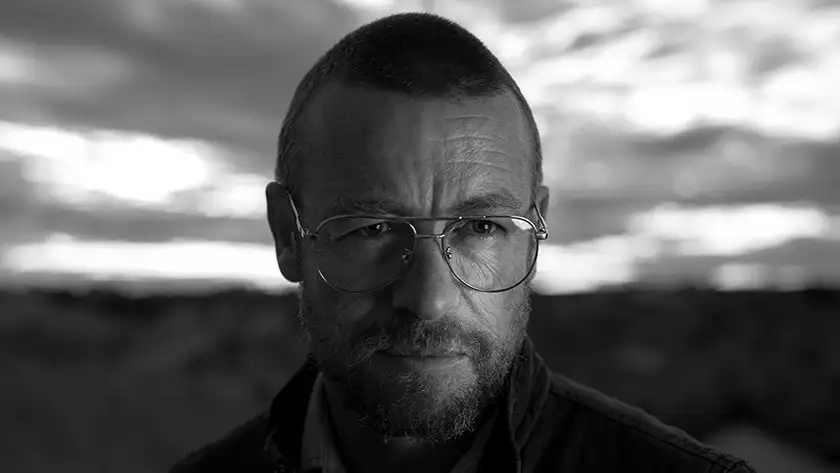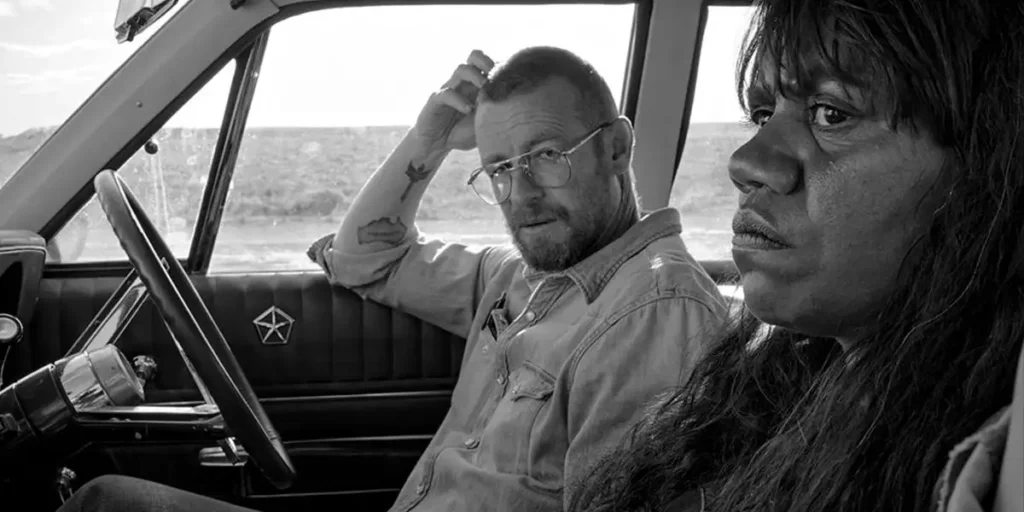Ivan Sen’s Limbo (2024) clearly has good intentions with its tale of aboriginal injustice, but its monotonous execution does those intentions no favors.
Limbo (2024) was written and directed by Ivan Sen and stars Simon Baker as Travis, a jaded detective who is assigned to reinvestigate an Australian cold case child murder from 20 years ago. As he goes through the town of Limbo – that’s actually what it’s named – he gets a pulse on the feelings of people either connected to or affected by the disappeared girl. Among those people is Emma (Natasha Wanganeen), who forms the closest thing to a friendship Travis gets during his time there.
Limbo touches upon some legitimately important subject matter. Obviously, child abduction and murder are among the heaviest subjects imaginable, but the Indigenous nature of the taken girl is a gateway into the additional themes of systemic injustice that Aboriginal Australians face, further highlighted by the several Indigenous people Travis speaks with, including Emma. With that in mind, it’s no surprise that Limbo is a very quiet, somber, meditative film in which everyone is world-worn and emotionally beaten down.
Anyone who’s talked with me about movies knows that I love a meditative slow burn when it’s done well. I especially love when a film can broach disturbing material with the gentleness and bleak atmosphere it needs. In Limbo, the goal is clearly to portray a town that is, as the film explicitly references, in a limbo between Earth and Hell, pretty much stripped of all life, joy, and expression because of what happened to them and the system they still live under. Even Travis falls victim to this because of how pointless he perceives the reopening of the case to be. The vision is here in concept.
But in execution, that vision goes beyond aggressively somber and veers straight into lifelessness. Almost every single second of Limbo is completely devoid of anything other than a static delivery that goes no deeper than the thinnest surface. The dialogue meanders through either exposition on the case or a very base level understanding of characters’ thoughts and feelings, leaving you to rely on the monotonous performances that every actor was clearly asked to deliver. I struggle to think of a single instance where anyone raises their voice, and only a few times does anyone’s face change from stoic indifference. There’s subtly expressive through downtrodden exteriors and then there’s just non-expressive.

The approach Limbo takes is tragic for a little while, but it becomes maddeningly numbing when it refuses to go any further than that, leaving the audience in a state of limbo between being awake and falling asleep. I was struggling to keep my eyes from glazing over throughout the entire second half, because everything that can be meaningfully taken from Limbo is taken within the first fifteen minutes. You could chop this running time in half and still get the same effect.
Sure, Limbo is shot adequately and clearly had skillful thought put into the framing and blocking, but there’s really nothing interesting within those frames. The black-and-white cinematography is clearly, like everything else, meant to represent the townsfolks’ colorless lives, but it just adds to the overall drabness. The only touches I like are Travis’s bunker-like bedroom whose stone walls provoke mild claustrophobia, and the single cars regularly passing by otherwise sparse scenes, which represent the feeling that Travis is just one of many onlookers making his way through this tragedy without really affecting anything.
There are a few shots set at night where the harsh contrast of light and pitch blackness adds an almost otherworldly look to the film. They’re very sparse, but they’re easily the best-looking bits of the entire movie, and I wonder if Limbo could have been better if it had leaned more into that visual sense of surreal gloom, which would have fit perfectly with the themes of loss and hopelessness.
Limbo grapples with the kind of topic that should be exposed through multiple mediums, including film. Unfortunately, however, the final result is one of the most unbearably boring films I’ve seen in a long time, which is the very last thing I ask films to be. It’s not horribly constructed or even horribly written … it’s just horribly empty, which I consider more frustrating.
Limbo (2024) will open in New York and Los Angeles on March 22, 2024. Read our reviews of recent Australian releases Force of Nature: The Dry 2, Shayda, and Talk to Me.

